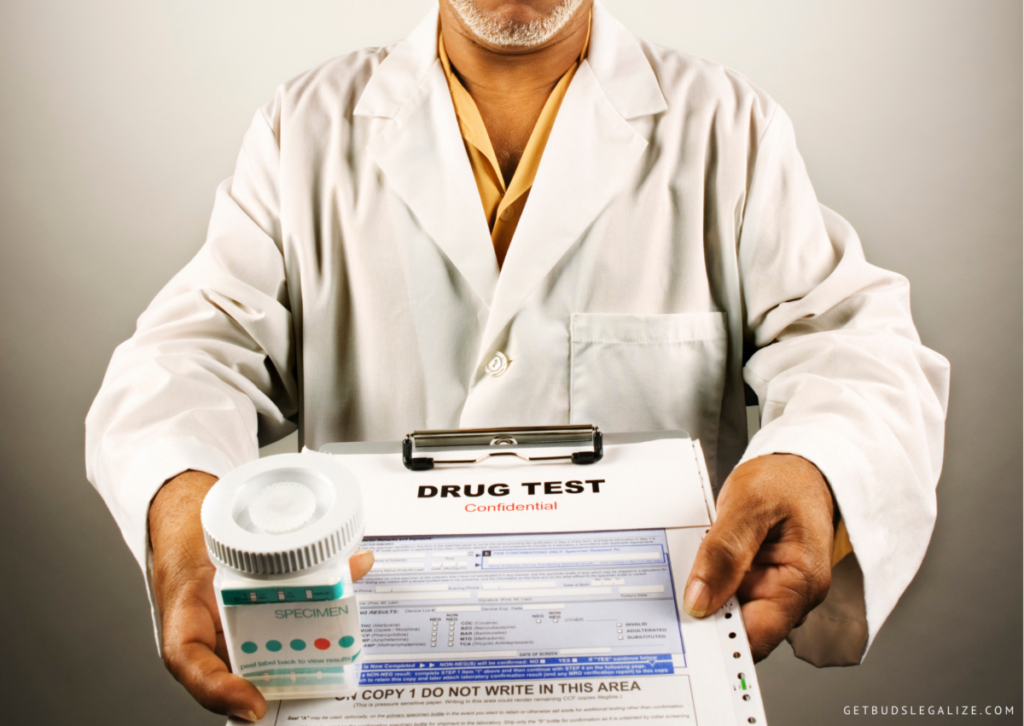How Long Does Weed Stay in Your System? Everything You Need to Know
Marijuana, also known as weed, cannabis, or pot, is a psychoactive substance that can produce a range of effects, from euphoria and relaxation to paranoia and anxiety. The main ingredient responsible for these effects is tetrahydrocannabinol (THC), which is metabolized by the liver and stored in fat cells throughout the body.
How long marijuana stays in your system depends on several factors, such as how much you use, how often, and what type of drug test you take. In this article, we’ll explain how different drug tests detect marijuana and its metabolites, how long the marijuana stays in your system, and answer many more questions to shed some light on this topic.
How Does Your Body Process THC?
When you smoke or ingest marijuana, THC enters your bloodstream and reaches your brain, where it binds to cannabinoid receptors and alters your mood, perception, memory, and cognition. THC also affects other parts of your body, such as your heart rate, blood pressure, appetite, and pain sensation.
Your liver processes THC and turns it into metabolites, which are chemical compounds that are more water-soluble and easier to eliminate. However, some of these metabolites are also fat-soluble, which means they can bind to fat molecules in your body and accumulate in your tissues and organs over time.
Over time, THC stored in your body’s tissues and organs is released back into the bloodstream, where it can be detected by drug tests. Your liver eventually breaks down the rest of the stored THC and its metabolites into smaller molecules that are excreted through urine, feces, sweat, and saliva.
So For How Long Does Weed Stay In Your System?

The length of time weed stays in your system depends on the type of drug test you take. Different drug tests have different detection windows, which are the periods of time after the last use when marijuana or its metabolites can be detected.
The most common types of drug tests for marijuana are urine tests, saliva tests, hair tests, and blood tests. Here is a summary of the tests with detection times in your system;
How Long Does Weed Stay in Urine?
Urine tests are the most common type of drug test for weed. They can detect THC-COOH for different periods of time depending on the user’s level of use. According to Mayo Clinic, these are some of the approximate detection windows for urine tests:
- Occasional users (less than three times a week): 3 days
- Moderate (four times a week): 5 to 7 days
- Chronic users (daily): 10 to 15 days
- Heavy chronic users (multiple times a day): more than 30 days
How Long Does Weed Stay in The Blood?
Blood tests are less common than urine tests for weed, as they are more invasive and expensive. They can detect THC for a shorter period of time than urine tests, as THC is quickly eliminated from the blood. According to the Mayo Clinic, these are approximate the times for the test detection:
- Occasional users: up to 3 hours
- Chronic users: up to 7 days
How Long Does Weed Stay in Saliva?
Saliva testing is also less common than urine tests for weed, as they are less reliable and consistent. They can detect THC for a very short period of time after use, as THC is quickly cleared from saliva by swallowing. According to Mayo Clinic, these are some of the approximate detection time windows for these tests:
- Occasional users: up to 24 hours
- Chronic users: up to 72 hours
How Long Does Weed Stay in Hair?
Hair drug tests are the least common type of drug test for weed, as they are very expensive and controversial. They can detect THC-COOH for a very long period of time after use, as THC-COOH can accumulate in hair follicles and remain there until the hair is cut or falls out. According to Mayo Clinic, these are some of the approximate detection windows for these tests:
- All users: up to 90 days
What Factors Affect How Long Cannabis Stays in Your System?
As mentioned above, there are many factors that can influence how long weed stays in your system and how long it can be detected by drug tests. Some of the most important factors are:
- Dose: The amount of marijuana you use affects how much THC and its metabolites are produced and stored in your body. The higher the dose, the longer it takes to eliminate them from your system.
- Frequency: The frequency of marijuana use affects how much THC and its metabolites accumulate in your body over time. The more often you use them, the longer it takes to clear them from your system.
- Potency: The potency of marijuana refers to the concentration of THC in the product you use. The higher the potency, the more THC you consume and the longer it stays in your system.
- Method: The method of marijuana use affects how quickly THC enters and leaves your bloodstream. Smoking or vaping marijuana delivers THC to your brain faster than eating or drinking it, but it also leaves your system faster.
- Metabolism: Your metabolism rate affects how quickly your liver breaks down THC and its metabolites. The faster your metabolism, the shorter the detection window for marijuana.
- Body fat: Your body fat percentage affects how much THC and its metabolites are stored in your fat cells. The more fat you have, the longer it takes to eliminate them from your system.
- Hydration: Your hydration level affects how diluted your urine is. The more hydrated you are, the lower the concentration of THC-COOH in your urine and the shorter the detection window for marijuana.
- Other factors: Other factors that may affect how long weed stays in your system include your age, gender, genetics, health conditions, medications, supplements, diet, exercise, and stress levels.
Are You Trying to Pass a Drug Test?

Some people may try to beat a drug test by using various methods or products that claim to flush out weed from their system. However, most of these methods are ineffective or unreliable at best, and harmful or dangerous at worst. Some examples of these methods include:
1• Drinking Lots of Water or Fluids to Dilute Your Urine:
This may lower the concentration of THC metabolites in your urine, but it will also make your urine clear and diluted, which can raise suspicion and trigger a retest.
2• Taking Diuretics or Detox Drinks to Increase Urination:
These products may contain herbs, vitamins, or chemicals that are supposed to help you pass a drug test. However, there is no scientific evidence that they work, and some of them may contain substances that can be detected by the testing lab.
3• Taking Supplements or Vitamins to Mask or Alter Your Urine:
Some people may take creatine, vitamin B12, or aspirin to make their urine appear normal or interfere with the testing process. However, these substances are not guaranteed to work, and some of them may have adverse effects on your health.
4• Using Synthetic Urine or Someone Else’s Urine:
This is a risky and illegal option that involves substituting your urine sample with fake or clean urine. However, this method can be easily detected by the testing lab if the temperature, color, pH, specific gravity, or chemical composition of the urine is abnormal. Moreover, you may face legal consequences if you are caught tampering with your sample.
5• Shaving Your Hair or Using Hair Products:
Some people may try to avoid a hair follicle test by shaving their head or body hair, or by using shampoos, conditioners, or bleaches that claim to remove drug traces from hair.
However, this method is not foolproof, as the testing lab may use other sources of hair (such as eyebrows, eyelashes, or pubic hair), or reject your sample if you have no hair at all. Furthermore, most hair products are ineffective at removing drug metabolites from hair shafts.
6• Abstaining From Weed for a Few Days Before the Test:
This is the only sure way to pass a drug test for weed, but it depends on how long THC stays in your system. THC is fat-soluble and accumulates in your body over time. The length of time it takes for THC to leave your system depends on various factors, such as your frequency and amount of use, the potency of weed, metabolism, body fat percentage, hydration level, and overall health.
Generally speaking, occasional users (less than once a week) can test negative within a few days after the last use, while regular users (more than once a week) can take several weeks or even months to clear their system.
None of these methods can guarantee that you will pass a drug test for weed. In fact, some of them may raise suspicion or trigger a positive result due to abnormal levels of substances or adulterants in your sample.
Why Is It a Bad Idea to Try to Beat a Drug Test for Weed?
Trying to beat a drug test for weed is not only ineffective but also risky. Here are some of the reasons why:
- You may face legal consequences if you get caught tampering with your sample or using someone else’s sample. This could result in fines, jail time, or loss of license.
- You may face professional consequences if you fail the drug test or get caught cheating. This could result in losing your job, getting demoted, losing your benefits, or ruining your reputation.
- You may face health consequences if you use unsafe products or methods that can harm your body. This could result in dehydration, kidney damage, liver damage, allergic reactions, infections, or poisoning.
- You may face ethical consequences if you lie about your drug use or try to deceive others. This could result in losing trust, respect, or credibility from your employer, colleagues, friends, or family.
What Can You Do Instead to Avoid Failing a Drug Test for Weed?

There is no magic pill or formula that can flush weed out of your system instantly. However, there are some natural ways that can help you detox from weed faster and more effectively. These include:
- Stop using weed: The best way to pass a drug test is to stop using weed as soon as possible and let your body naturally eliminate the THC from your system. Depending on how often and how much you use weed, this could take anywhere from a few days to a few weeks.
- Drink plenty of water: Water helps flush out toxins and metabolites from your body and keeps you hydrated. Aim for at least one gallon of pure water per day for seven days in equal portions of three cups throughout the day.
- Reducing fat and sugar intake: Fat and sugar can cause temporary bloat and water retention, which can slow down the detox process. Avoid fatty and sugary foods, such as chips, pizza, ice cream, and candy.
- Increasing fiber intake: Fiber helps bind to toxins and metabolites in your digestive system and eliminate them through your stool. Eat more fiber-rich foods, such as fruits, vegetables, whole grains, nuts, seeds, and beans.
- Exercising regularly: Exercise helps burn fat cells where THC is stored and increases the metabolism rate. It also boosts blood circulation and oxygen delivery to your organs. Do some cardio and weight training at least three times a week for 30 minutes each session.
- Taking supplements: Some supplements may help support your liver function and detoxification process. These include vitamin B complex, milk thistle, dandelion root, and green tea extract. Consult your doctor before taking any supplements to avoid any adverse effects or interactions with medications.
What Are the Possible Side Effects of Marijuana Withdrawal?
The process of detoxing from weed can vary depending on how long and how much you have been using it. Some people may experience withdrawal symptoms, such as:
- Irritability
- Anxiety
- Depression
- Insomnia
- Headaches
- Loss of appetite
- Cravings
- Mood swings
- Restlessness
- Fatigue
- Nausea
- Sweating
- Chills
These symptoms are usually mild and temporary, and they tend to peak within the first week of abstinence. They can be managed by staying hydrated, eating healthy, exercising, meditating, seeking support, and avoiding triggers.
Bottom Line
Weed can stay in your system for different periods of time depending on the type of drug test and the factors that affect your metabolism. There is no definitive way to determine how long weed will stay in your system, but there are some general estimates based on research and experience.
If you want to detox from weed or pass a drug test, the best way is to stop using it as soon as possible and let your body do the rest. However, if you have a medical condition or a prescription for medical cannabis, you should consult your doctor before stopping or changing your dosage.
Frequently Asked Questions
Weed, also known as marijuana, cannabis, pot, or grass, is a plant that contains psychoactive compounds called cannabinoids. The most well-known cannabinoid is tetrahydrocannabinol (THC), which is responsible for the high that weed users experience. THC interacts with receptors in the brain and other parts of the body, affecting mood, memory, perception, pain, appetite, and more.
Weed can be consumed in various ways, such as smoking, vaping, eating, or applying topically. When weed is smoked or vaped, THC enters the bloodstream through the lungs and reaches the brain within minutes. When weed is eaten or applied topically, THC is absorbed through the digestive system or the skin and reaches the bloodstream more slowly, but can last longer.
Once THC enters the bloodstream, it is broken down by enzymes in the liver into metabolites, which are then excreted in urine, feces, sweat, saliva, and hair. The most common metabolite that drug tests look for is THC-COOH (11-nor-9-carboxy-THC). The amount and duration of THC and its metabolites in the system depend on several factors, such as:
- The frequency and amount of weed use
- The potency and type of weed
- The method of consumption
- The user’s body mass/fat percentage and metabolism rate
- The user’s hydration and diet
- The type and sensitivity of the drug test
There is no guaranteed way to get weed out of your system faster than it naturally does. Some of the methods that people use to try to flush weed out of their system, such as drinking lots of water, taking detox products, or exercising, are either ineffective or risky.
The best way to avoid testing positive for weed is to abstain from using it for a sufficient period of time before the test. However, if you are a medical marijuana patient or live in a state where weed is legal, you might have some legal protections or options to challenge a positive test result.
There are several ways you can adopt, such as:
- Stop using cannabis as soon as you know you have a test coming up. The longer you abstain, the more likely you are to clear your system.
- Drink plenty of water and fluids to flush out your system and dilute your urine. However, don’t overdo it, as this can raise suspicion and trigger a retest.
- Exercise regularly and sweat out the toxins. THC is stored in fat cells, so burning fat can help eliminate it from your body. However, avoid exercising right before the test, as this can release more THC into your bloodstream and urine.
- Eat a healthy diet rich in fiber and antioxidants to boost your metabolism and detoxification. Avoid fatty and sugary foods that can slow down your digestion and increase your THC levels.
- Use a detox product that can help cleanse your system and mask the presence of THC. There are many products on the market that claim to do this, such as drinks, pills, shampoos, mouthwashes, etc. However, not all of them are effective or safe, so do your research before buying them.
There are also some tips to help you pass a saliva test, such as:
- Brush your teeth and floss regularly to remove any traces of THC from your mouth.
- Rinse your mouth with water or mouthwash several times before the test to dilute your saliva.
- Chew gum or eat hard candy to stimulate saliva production and wash away any residue.
- Avoid smoking or eating anything for at least an hour before the test to prevent contamination.
These are some of the best methods to pass saliva drug testing for cannabis. However, keep in mind that none of them are 100% foolproof or guaranteed.
False positives are when a drug test shows a positive result for a substance that you did not use. This can happen due to various reasons, such as cross-reactivity with other substances, laboratory errors, or contamination.
One possible cause of a false positive for weed is exposure to smoke from marijuana from other people. This can happen if you are in a closed or poorly ventilated space where someone is smoking weed, or if you share a smoking device with someone who uses weed.
However, the risk of getting a false positive for this cause is very low, as the amount of THC that you can inhale from secondhand smoke is minimal and unlikely to reach the detection thresholds of most drug tests. A 2015 study found that non-smokers who were exposed to extreme smoke from marijuana in a chamber for 15 minutes had detectable levels of THC in their urine, but only for a few hours and below the cutoff levels for most drug tests.
To avoid getting a false positive from this cause, you should avoid being around people who are smoking weed, especially in enclosed or poorly ventilated spaces. You should also avoid sharing any smoking devices with weed users, such as pipes, bongs, or vaporizers.
Generally speaking, weed can be detected in urine for up to 30 days after last use for chronic users, and up to 3 days for occasional users. Weed can be detected in blood for up to 3 hours after smoking it, but this may vary depending on the dose and route of administration. Weed can be detected in saliva for up to 24 hours after use, but this may also depend on the type of test used and other factors. Weed can be detected in hair for up to 90 days after use, but this method is less reliable and more prone to contamination.
Therefore, there is no definitive answer to how long weed stays in your system after you smoke it. The best way to avoid any negative consequences of weed use is to abstain from it or use it responsibly and moderately.
The duration of weed in your system after ingestion depends on several factors, such as the amount consumed, the frequency of use, the metabolism of the individual, and the type of drug test used. Generally speaking, weed can be detected in urine for up to 30 days after ingestion, in blood for up to 7 days, in saliva for up to 3 days, and in hair for up to 90 days.



















